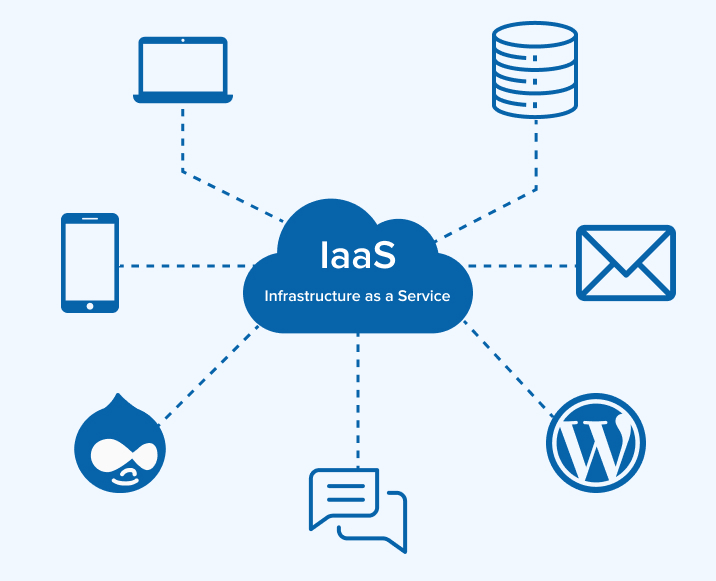
Infrastructure As Service
The infrastructure cloud provides cloud storage and computing resources as a service that enable developers and IT organizations to deliver business solutions. IaaS has evolved from the virtual private server (VPS) concept. An IaaS cloud providerIt provides complete flexibility to consumers in choosing desktops, servers or on-demand network access. Consumers can customize the entire infrastructure package by selecting CPU hours, data storage space, bandwidth etc. Rather than buying expensive servers and taking the headache of setting up the physical data centers and underlying infrastructure, IaaS cloud as the most flexible cloud computing model helps businesses in reducing IT CAPEX and OPEX by a big proportion. In simple words, IaaS allows remote management of data center infrastructures. IaaS contains sub-categories: Public, Private and Combination. The Public cloud consists of shared computing resources and networking resources, managed by a cloud service provider. By contrast, the private cloud provides secure user access to your cloud resources and is managed by the organization it serves. The hybrid cloud is maintained by both internal and external cloud providers. IaaS adds value to businesses through Business agility; Cost reduction; Reliability, Scalability; Privacy & governance; and single integrated user experience. Some of the most popular IaaS cloud service providers include Amazon Web Services, Microsoft Azure, and Google Compute Engine.
Benefits of Choosing Infrastructure as a Service
Enhanced performance and save upfront cost
It comprises intensive information security measures like end-to-end encryption
Provides scalability and flexibility like none other cloud services
Keeps your data restored and up-to-date
Basic characteristics of IaaS:
Computing resources distributed as a service
Dynamic, on-demand scaling of computing resources
Utility- based pricing model
Concurrent users on a single piece of computing hardware
